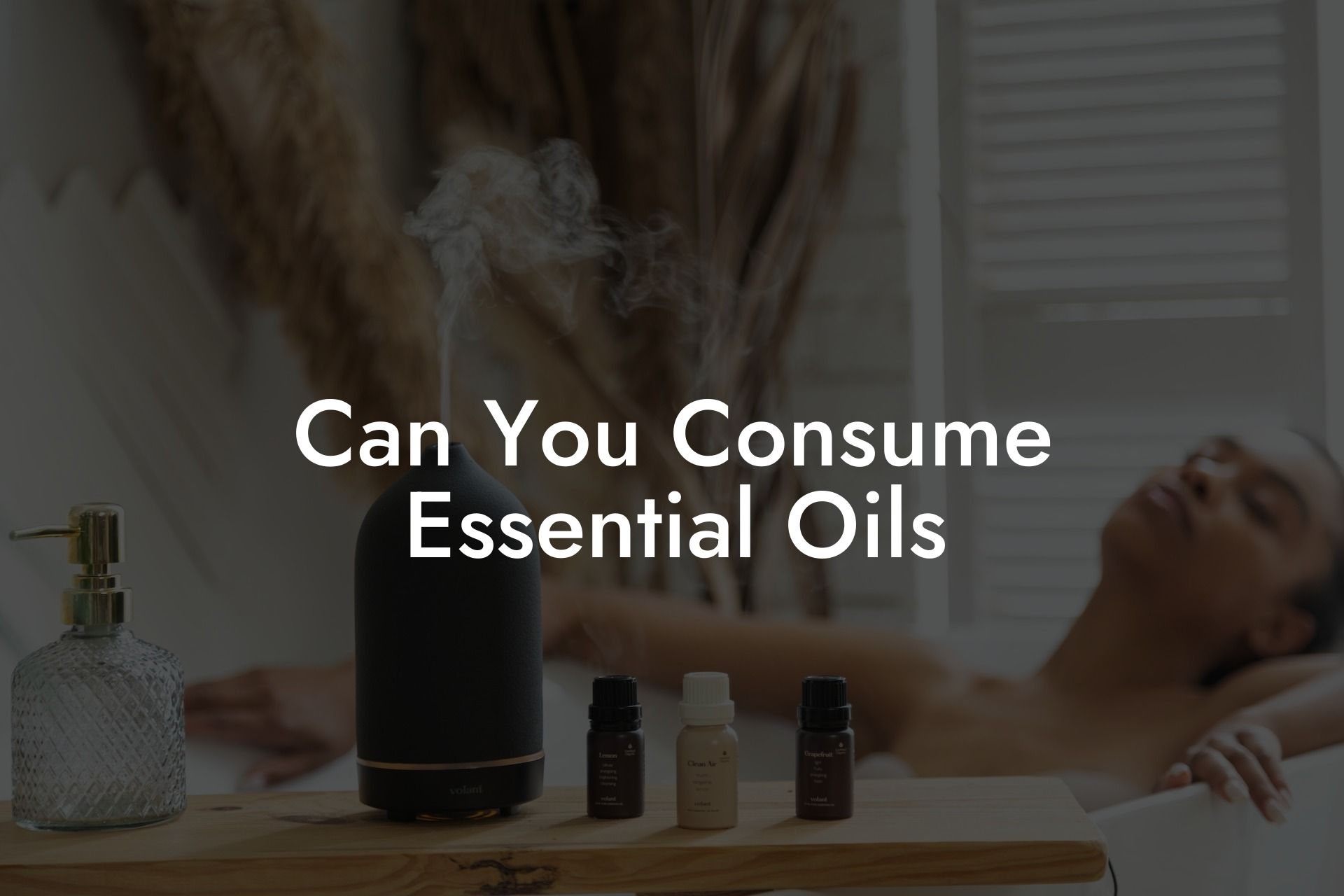Have you ever wondered if essential oils are safe for consumption? As the popularity of essential oils continues to grow, questions surrounding their safety and proper usage become more prevalent. In this article, we delve deep into the world of essential oils and explore whether or not they can be consumed safely.
Table of Contents
Understanding Essential Oils
Essential oils are concentrated plant extracts that capture the natural aroma and flavor, or “essence,” of a plant. These oils are typically extracted using the process of steam distillation but can also be cold-pressed or extracted through the use of solvents. Essential oils have become popular for their numerous health benefits, aromatherapy, and natural healing properties.
Are Essential Oils Safe for Consumption?
It’s important to note that not all essential oils are safe for consumption. Certain essential oils should never be ingested, while others may be used with appropriate care and guidance. Quality and purity are crucial factors to take into account when determining which oils are suitable for consumption. Generally, you should consult a qualified healthcare professional before considering ingesting essential oils.
Selecting Safe Essential Oils for Consumption
Food-Grade Oils and GRAS Status
When choosing essential oils for consumption, be sure they are labeled as “food grade” or have a GRAS (Generally Recognized As Safe) designation by the United States Food and Drug Administration (FDA). This ensures that the oil is of high quality and safe for consumption. However, this designation does not guarantee that the essential oil is safe for everyone’s consumption, and individual tolerances may still vary.
Purity and Quality
Essential oil purity and quality are essential factors to consider when using them for ingestion. High-quality oils will have accurate and detailed labeling regarding their origin, botanical name, extraction method, and any additional processing. Be cautious of essential oils that contain fillers, additives, or synthetic ingredients, as these may be harmful when ingested.
Professional Guidance
Always consult with a qualified healthcare practitioner or aromatherapist before considering ingesting essential oils. They can provide guidance on safe usage, toxicology, and contraindications of essential oils based on your specific health conditions, age, and other factors.
Dosage and Safety Guidelines
Start Low and Slow
When it comes to consuming essential oils, it’s crucial to remember the phrase “less is more.” Begin with a low dose and observe your body’s reaction before gradually increasing the amount. Overdosage of essential oils can lead to negative side effects, even when using oils recognized as safe for consumption.
Dilution and Carrier Oils
To minimize potential risks, essential oils should be diluted with a carrier oil, such as coconut, olive, or almond oil, before being consumed. This helps minimize any potential irritation or adverse reactions from direct contact with the concentrated essential oil.
Adhere to Guidelines
Follow the guidance of healthcare professionals and essential oil labeling to ensure proper usage. Be aware of individual safety guidelines for each oil, as recommendations for one may not apply to another.
Can You Consume Essential Oils Example:
A person might struggle with occasional stress and wishes to use essential oils for their calming properties. After researching and consulting a professional, they determine that lavender essential oil is considered safe for consumption and has GRAS status.
To use lavender essential oil internally, they carefully choose a high-quality, food-grade oil and dilute one drop with a teaspoon of coconut oil. Following their healthcare professional’s guidance, they mix the dilution into a cup of herbal tea, consuming it once daily. Over time, they find this technique helps support their overall well-being and manage stress levels.
Navigating the world of essential oils and their safe consumption can be complex and requires diligence and appropriate research. Always consult with healthcare professionals before ingesting any essential oils, and remember that less is more. We hope this article has provided valuable insights to guide you on your journey with essential oils.
If you enjoyed this article and found it informative, consider sharing it with others interested in the world of essential oils! Don’t forget to explore other guides on Oshu Oils’ blog and discover our wide range of Artisan Essential Earth Oils, carefully crafted to support your wellbeing.





















